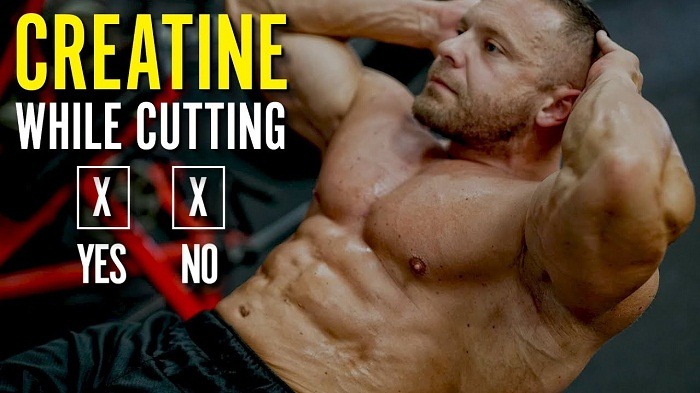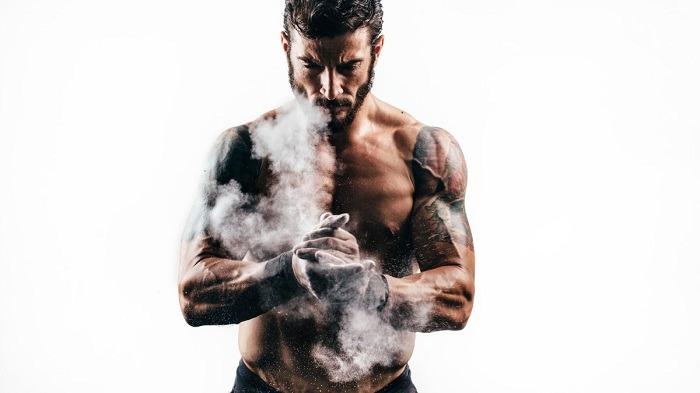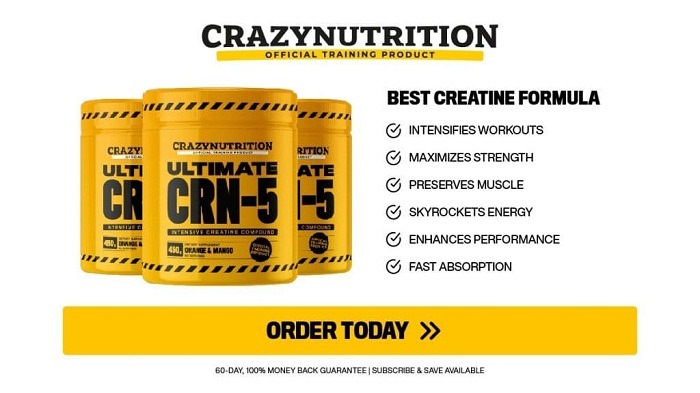Creatine While Cutting
Contents
- 1 Creatine While Cutting
- 2 Understanding the Cutting Phase
- 3 The Role of Creatine While Cutting
- 4 Creatine and Muscle Preservation
- 5 Creatine Dosage and Timing
- 6 Dosage Recommendations
- 7 Timing Strategies
- 8 Monitoring Creatine Levels
- 9 Recommended Creatine Dosage and Timing
- 10 Benefits of Creatine While Cutting
- 11 Preservation of Lean Muscle Mass
- 12 Improvement in Strength and Performance
- 13 Enhanced Post-Exercise Recovery
- 14 Considerations and Side Effects
- 15 Gastrointestinal Issues
- 16 Hydration
- 17 Weight Gain
- 18 Individual Considerations
- 19 Conclusion
- 20 People Also Ask
Cutting is a critical phase in bodybuilding and fitness where athletes aim to reduce body fat while preserving muscle mass. It involves a meticulous approach to nutrition and exercise to achieve a lean, defined physique. During this phase, many athletes consider incorporating supplements like creatine into their regimen to enhance their results. But is taking creatine while cutting a good idea? Let’s delve deeper into this topic.
Related Post: The Top 15 Best Creatine Monohydrate Supplements for Muscle Growth
Understanding the Cutting Phase
Elite bodybuilders and fitness competitors follow a structured cutting regimen to achieve their desired physique. This phase typically involves reducing calorie intake, especially from fats and carbohydrates, while increasing protein consumption. The goal is to create a caloric deficit, forcing the body to burn stored fat for energy. However, cutting too quickly or severely can lead to muscle loss, which is why a gradual approach is recommended.
The Role of Creatine While Cutting

Creatine is a naturally occurring compound found in muscle cells, where it plays a crucial role in energy production during high-intensity exercise. It is also involved in muscle cell hydration, which can affect muscle size and strength. While your body can produce creatine, supplementing with creatine monohydrate can increase your muscle creatine levels, potentially enhancing performance and muscle growth.
Creatine and Muscle Preservation
One of the primary concerns during the cutting phase is preserving muscle mass. When you consume fewer calories than your body needs, it may turn to muscle tissue for energy, especially if you’re not providing enough stimulus to maintain muscle mass. Creatine supplementation may help mitigate muscle loss by providing an additional energy source for your muscles, potentially allowing you to maintain strength and performance during workouts.
Creatine Dosage and Timing
Understanding the proper dosage and timing of creatine intake is crucial for maximizing its benefits. Here, we’ll explore the recommended dosages, loading phases, and timing strategies for creatine supplementation.
Dosage Recommendations
The typical dosage for creatine supplementation can vary depending on individual factors such as body weight, muscle mass, and workout intensity. However, a common approach is to start with a loading phase of 20 grams per day for 5-7 days, followed by a maintenance phase of 3-5 grams per day.
The loading phase involves saturating your muscles with creatine to quickly increase your muscle creatine stores. This phase is optional, but some athletes may choose to do it to accelerate the benefits of creatine supplementation.
After the loading phase, the maintenance phase involves taking a lower dose of creatine to maintain elevated muscle creatine levels. This phase typically lasts for several weeks or months, depending on your training regimen and goals.
Timing Strategies
The timing of creatine intake is less critical than the dosage, but some athletes prefer to take creatine before or after workouts to maximize its benefits. Taking creatine before a workout may help increase muscle creatine stores and improve performance during high-intensity exercise. On the other hand, taking creatine after a workout may help replenish depleted creatine stores and aid in recovery.
Another strategy is to split your daily creatine dose into smaller doses taken throughout the day. This approach may help maintain more stable creatine levels in your muscles and minimize the risk of gastrointestinal issues that can occur with high doses of creatine.
Monitoring Creatine Levels
It’s essential to monitor your creatine levels and adjust your dosage and timing accordingly. Some athletes may find that they respond better to higher or lower doses of creatine, so it’s essential to listen to your body and make adjustments as needed.
Recommended Creatine Dosage and Timing
Here is a simple chart outlining the recommended dosage and timing strategies for creatine supplementation:
| Phase | Dosage | Timing |
| Loading Phase | 20 grams per day | Spread throughout the day |
| Maintenance Phase | 3-5 grams per day | Before or after workouts |
Benefits of Creatine While Cutting

During the cutting phase, athletes and bodybuilders aim to reduce body fat while preserving muscle mass. Creatine supplementation has been studied extensively for its potential benefits during this phase. Research has shown that creatine can play a crucial role in preserving lean muscle mass, improving strength, and enhancing performance during high-intensity exercise.
Preservation of Lean Muscle Mass
One of the primary concerns during the cutting phase is the potential loss of muscle mass due to calorie restriction and increased exercise intensity. However, studies have shown that creatine supplementation can help mitigate this effect by providing an additional energy source for muscles. By maintaining adequate creatine levels, athletes may be able to preserve more muscle mass while cutting.
Improvement in Strength and Performance
Creatine has long been known for its ability to improve strength and performance during high-intensity exercise. This can be particularly beneficial during cutting phases when athletes may experience fatigue and reduced performance due to calorie restriction. By supplementing with creatine, athletes may be able to maintain or even improve their strength levels, allowing them to continue training at a high intensity.
Enhanced Post-Exercise Recovery
Another potential benefit of creatine supplementation during cutting phases is its ability to aid in post-exercise recovery. Intense workouts can lead to muscle damage and fatigue, which can hinder performance and recovery. Creatine has been shown to help reduce muscle damage and inflammation, allowing athletes to recover faster between workouts and maintain a high level of performance throughout their cutting phase.
Considerations and Side Effects
While creatine is widely regarded as a safe and effective supplement, it’s essential to be aware of potential side effects and considerations when using it, especially during cutting phases.
Gastrointestinal Issues
One of the most common side effects of creatine supplementation is gastrointestinal discomfort, including stomach pain and diarrhea. These symptoms are more likely to occur during the loading phase when higher doses of creatine are consumed. To minimize these effects, it’s recommended to start with a lower dose and gradually increase it over time.
Hydration
Creatine supplementation can cause muscles to retain water, which is why it’s essential to stay hydrated while taking creatine. Dehydration can lead to muscle cramps, fatigue, and other adverse effects. Drinking plenty of water throughout the day can help prevent these issues and ensure that your body is properly hydrated.
Weight Gain
Another potential side effect of creatine supplementation is temporary weight gain due to water retention. While this can be concerning for some individuals, it’s important to remember that this is not the same as gaining fat. This temporary increase in weight is typically due to the muscles holding onto more water, which can make the muscles appear fuller and more defined.
Individual Considerations
It’s also important to consider individual factors when using creatine. Some people may be more sensitive to creatine and experience more pronounced side effects. Additionally, individuals with certain medical conditions or taking certain medications should consult with a healthcare professional before using creatine to ensure that it is safe for them.
Conclusion
In conclusion, creatine supplementation can be a valuable tool for athletes and fitness enthusiasts looking to optimize their cutting phase. By helping to preserve muscle mass, improve strength, and enhance performance, creatine can support your fitness goals and help you achieve a lean, defined physique.
However, it’s essential to approach creatine supplementation with caution and follow recommended dosages to minimize the risk of side effects. Starting with a loading phase followed by a maintenance phase can help saturate your muscles with creatine while avoiding gastrointestinal discomfort and other issues.
Additionally, consulting with a healthcare professional or nutritionist before starting any new supplement regimen is crucial, especially if you have underlying health conditions or are taking medication. They can provide personalized advice based on your individual needs and help you safely incorporate creatine into your cutting regimen.
Overall, when used correctly and under the guidance of a healthcare professional, creatine supplementation can be a safe and effective way to support your cutting goals and maximize your performance in the gym.
People Also Ask
Do you take creatine on a cut?
Yes, many athletes and bodybuilders continue to take creatine during a cutting phase to help preserve muscle mass and enhance performance.
Should I take creatine if trying to lose weight?
Yes, creatine can be beneficial for individuals trying to lose weight, as it may help preserve muscle mass and improve exercise performance.
Can you stay lean on creatine?
Creatine itself does not directly influence body fat percentage. However, when combined with a balanced diet and regular exercise, creatine can help individuals stay lean by preserving muscle mass.
Will I look more cut if I stop taking creatine?
Stopping creatine supplementation is unlikely to have a significant impact on your appearance. Any changes in muscle definition would likely be due to other factors such as diet and exercise.
Can you gain muscle while cutting?
It is possible to gain muscle while cutting, especially for beginners or individuals returning to training after a break. However, the rate of muscle gain is typically slower during a cutting phase compared to a bulking phase.
Which creatine is best for cutting?
Creatine monohydrate is the most researched and widely used form of creatine. It is suitable for both cutting and bulking phases.
Can I take creatine with a fat burner?
There is no known interaction between creatine and fat burners. However, it’s always best to consult with a healthcare professional before combining supplements.
Is creatine used for bulking?
Creatine is commonly used during bulking phases to help increase muscle mass and strength. However, it can also be beneficial during cutting phases to preserve muscle mass.
How to use creatine to cut weight?
To use creatine during a cutting phase, follow the recommended dosage instructions and continue to engage in regular exercise and a balanced diet to support your weight loss goals.
How much water should I drink with creatine?
It is recommended to drink plenty of water when taking creatine to ensure adequate hydration, especially during a loading phase.
Should I take creatine while trying to lose belly fat?
Creatine can be taken while trying to lose belly fat, as it may help preserve muscle mass during a caloric deficit. However, spot reduction of fat is not possible, so a combination of diet and exercise is key.
Does creatine have side effects?
Some people may experience gastrointestinal issues such as stomach pain and diarrhea when taking creatine, especially during the loading phase. It’s best to start with a lower dose to assess tolerance.
What happens if you stop taking creatine?
If you stop taking creatine, your muscle creatine levels will gradually return to baseline. This may result in a slight decrease in performance during high-intensity exercise.
How long should I take creatine?
Creatine supplementation can be taken long-term, as there is no evidence to suggest it is harmful when used appropriately. However, it’s always best to consult with a healthcare professional.
How much creatine per day?
The recommended dosage for creatine supplementation varies, but a common approach is to start with a loading phase of 20 grams per day for 5-7 days, followed by a maintenance phase of 3-5 grams per day.
When should I take creatine?
Creatine can be taken at any time of day. Some athletes prefer to take it before or after workouts to maximize its benefits, while others may split the dose throughout the day.
How many calories are in creatine?
Creatine itself contains no calories. However, some creatine supplements may contain added ingredients that contribute to the overall calorie content.
How to burn belly fat?
Burning belly fat requires a combination of a balanced diet, regular exercise, and adequate sleep. Incorporating strength training and cardiovascular exercise can help target stubborn belly fat.
Does creatine affect sleep?
There is no direct link between creatine supplementation and sleep. However, some people may experience changes in sleep patterns due to changes in exercise routine or other factors.
How much creatine is safe for the kidneys?
Creatine supplementation is generally safe for healthy individuals, including those with healthy kidneys. However, people with pre-existing kidney conditions should consult with a healthcare professional before taking creatine.
How to take creatine correctly?
To take creatine correctly, follow the recommended dosage instructions and consider splitting the dose throughout the day to improve absorption. It’s also essential to stay hydrated when taking creatine.
Does creatine replace protein?
Creatine and protein serve different purposes in the body. Creatine helps provide energy for high-intensity exercise, while protein is essential for muscle repair and growth. Both can be beneficial for overall muscle health.
Which is better, whey protein or creatine?
Whey protein and creatine serve different purposes and can be beneficial when used together. Whey protein helps support muscle repair and growth, while creatine enhances energy production during high-intensity exercise.
Is it better to take creatine before or after a workout?
The timing of creatine supplementation is less critical, as long as you consistently take it every day. Some athletes prefer to take creatine before or after workouts to maximize its benefits, but this is a personal preference.
Does creatine affect sperm?
There is no evidence to suggest that creatine supplementation affects sperm quality or fertility in healthy individuals.
Does creatine affect hair?
There is no scientific evidence to suggest that creatine supplementation affects hair loss or growth.
Does creatine affect the liver?
Creatine supplementation is generally safe for the liver when used appropriately. However, individuals with liver conditions should consult with a healthcare professional before taking creatine.
Is creatine a pre-workout?
Creatine is not technically a pre-workout supplement, but it is commonly included in pre-workout formulas due to its ability to enhance performance during high-intensity exercise.
Can I mix creatine with protein?
Yes, creatine can be mixed with protein shakes or consumed alongside protein-rich foods as part of a balanced diet.
Can I mix creatine with whey?
Yes, creatine can be mixed with whey protein powder or consumed alongside whey protein as part of a balanced diet and exercise regimen.
How much weight will creatine add?
The weight gain from creatine supplementation is primarily due to water retention in muscle cells, which can vary among individuals. However, this weight gain is temporary and should not be a cause for concern.
Does creatine expire?
Creatine supplements typically have a shelf life of several years if stored correctly in a cool, dry place. However, it’s always best to check the expiration date on the packaging.
Can I take creatine with milk?
Creatine can be taken with milk or mixed with milk-based protein shakes as part of a balanced diet.
Who shouldn’t take creatine?
Creatine supplementation is not recommended for individuals with pre-existing kidney conditions or those who are pregnant or breastfeeding without consulting a healthcare professional.
Should beginners take creatine?
Creatine supplementation can be beneficial for beginners, especially those looking to improve their performance in high-intensity exercise.
Should I eat first or take creatine?
Creatine can be taken with or without food. Some people prefer to take it with a meal to aid in absorption, while others take it on an empty stomach. It’s a personal preference.

